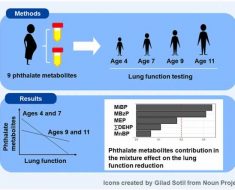
Telehealth-delivered parenting interventions lead to significant and maintained improvements for young children with developmental disorders (DD) and their caregivers, according to a study published online Jan. 9 in JAMA Pediatrics.
Daniel M. Bagner, Ph.D., from Florida International University in Miami, and colleagues evaluated the efficacy of a telehealth parenting intervention for behavior problems in young children with DD. Analysis included 150 children-caregiver dyads randomly assigned to internet-delivered parent-child interaction therapy (iPCIT) or referrals as usual (RAU).
The researchers found that children receiving iPCIT showed significantly lower levels of externalizing problems and significantly higher levels of compliance to caregiver direction after treatment versus RAU. Postintervention, there was greater clinically significant change observed in the iPCIT group (74 percent, versus 42 percent in the RAU group) at the six-month follow-up but not the 12-month follow-up. While iPCIT did not outperform RAU in reducing caregiving stress, caregivers receiving iPCIT showed steeper increases in proportion of observed positive parenting skills (postintervention odds ratio, 1.10; 95 percent confidence interval, 0.53 to 2.21). Additionally, iPCIT was associated with sharper decreases in proportion of observed controlling/critical behaviors (postintervention odds ratio, 1.40; 95 percent confidence interval, 0.61 to 1.52). iPCIT caregivers also self-reported steeper decreases in harsh and inconsistent discipline postintervention than RAU caregivers.
“Against a backdrop of considerable barriers to mental health services, these findings show the promise of telehealth formats for expanding the reach and scope of care for underserved children with developmental delay and their families,” the authors write.
One author received personal fees from PCIT International to train clinicians in PCIT.
More information:
Daniel M. Bagner et al, Telehealth Treatment of Behavior Problems in Young Children With Developmental Delay, JAMA Pediatrics (2023). DOI: 10.1001/jamapediatrics.2022.5204
Journal information:
JAMA Pediatrics
Source: Read Full Article





